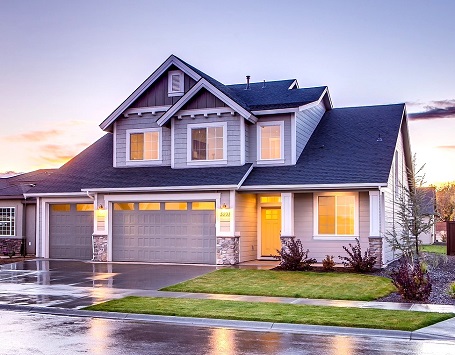Expenses to Budget for When Buying a Home
 Buying a home is an exciting milestone for anyone trying to get on the housing ladder, but it also requires careful financial planning. When budgeting for a home purchase, there are several key expenses you’ll need to account for beyond just the purchase price. Understanding these costs in advance will help you estimate your total budget and prepare for all aspects of the home buying process.
Buying a home is an exciting milestone for anyone trying to get on the housing ladder, but it also requires careful financial planning. When budgeting for a home purchase, there are several key expenses you’ll need to account for beyond just the purchase price. Understanding these costs in advance will help you estimate your total budget and prepare for all aspects of the home buying process.
Deposit
One of the first expenses to save for is your deposit. The minimum deposit required is usually 5% of the property value, though a bigger deposit of 10-20% will get you better mortgage rates. Be ready to have this large sum on hand before viewing properties.
Mortgage Fees
Many mortgages require an arrangement fee to the lender, which covers the administrative costs of setting up the mortgage. This can be £500-£2000. There may also be valuation fees of £200-£350 for the lender to assess the property.
Legal Fees
You’ll need a solicitor or licenced conveyancer to handle all the legal aspects of your purchase. Their fees can range from £500 for a basic home purchase to £1500+ for a more complex purchase involving leaseholds or shared ownership. Read terms carefully.
Surveying Fees
A property survey gives insight into the structure and condition of the home. The mortgage lender will carry out a basic mortgage valuation, but it’s recommended that get a more comprehensive home buyer survey, also known as a RICS Level 2 survey for £400-£600. Speak with a house surveyor in Norwich to find out more. Specific defect surveys may also be advisable.
Stamp Duty
This tax must be paid on property purchases over £250,000. For first-time buyers the tax kicks in at £425,000. Stamp duty is levied at 5% from £250,000 to the next band of £925,000, and 10% for the portion from £925-£1.5 million. Calculate this early.
Moving Costs
Factor in expenses like hiring a van or removal company, which can cost £100-£1500+ depending on how much you need moved. Change of address admin and redirection of mail is another additional cost.
Home Improvements
Most buyers spruce up their new home with a fresh coat of paint at minimum. But larger projects like a new kitchen or bathroom should also be budgeted where possible. These can cost thousands.
Furniture
Review what existing furniture you own versus what you’ll need to purchase for the new space. Bedrooms and living rooms often require new large purchases when upsizing or downsizing a home. Shop sales and check secondhand sites.
Ongoing Costs
Once you move in, budget for regular maintenance like garden upkeep or window washing. Utility bills may also be higher in a larger home. And factor in commuting costs if your new home is further from work.
With prudent saving and careful research into the true costs involved, buying a home doesn’t have to be stressful financially. Seek guidance from financial advisors and mortgage brokers. And give yourself ample time to save the necessary funds. Tracking all these expenses in a comprehensive budget will keep your home purchase on track.